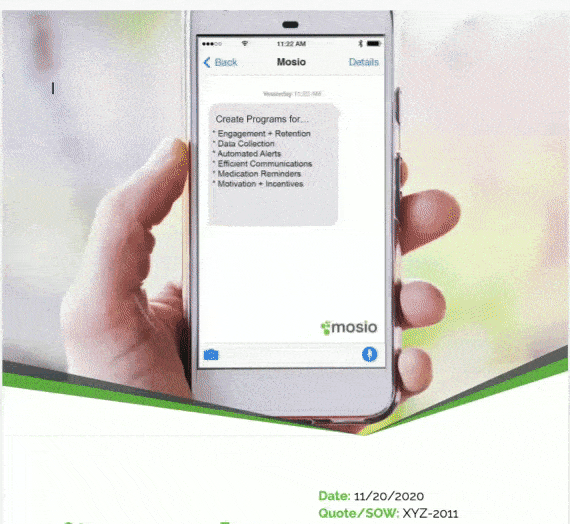Investigator Initiated Studies (IIS) are a necessary and valuable asset to medical research. These trials are often conducted at research hospitals and universities and differ from conventional clinical trials in several ways.
A successful IIS has several benefits not available to a conventional clinical trial and often fills gaps where a clinical trial has produced unanswered questions. It is, however, more complicated and difficult to successfully conduct an IIS due to several factors, not least, the lack of industry support.
Investigator Initiated trials vs Investigator Initiated Studies: Clarifying
There are numerous terms for studies conducted by investigators, and they are usually used to describe the same thing. Since this can get confusing, we will be using the term Investigator Initiated Studies, or IIS for this article, but elsewhere you may see the terms Investigator Sponsored Studies, Investigator Initiated Trials, or Principal Investigator Research Projects, among others.
For participants and researchers involved in such a trial, it’s useful to understand the differences between an IIS and a conventional study, along with the process of conducting one. The strengths and weaknesses of an Investigator Initiated Study and the opportunities they provide to medical research.
What is an Investigational Study?
Investigational studies are a part of clinical trials conducted by researchers using participants made up of human volunteers. A clinical investigation is the part of a clinical trial where the investigator directly interacts with the participant, either in an inpatient or an outpatient setting.
It’s worth noting that the exception in this definition is in trials that do not involve human participants, such as those using only human tissue samples. So it’s possible to have an investigational study without participants, but this isn’t the norm in general.
Commonly, these investigations are sponsored and started by drug or device manufacturers as part of the phases of human trials, but in some cases, they can be funded and initiated by an investigator, either through their institution of an NGO or other non-pharmaceutical funding body. This is true in the case of Investigator Initiated Studies.
What are Investigator Initiated Studies (IIS)?
In a standard investigational study, the roles of the sponsor are usually separate from those of the investigator. However, in an investigator initiated study, the same individual usually fills both roles. This person is therefore responsible for the initiation, funding, and conduct of the clinical investigation.
Definitions
According to the EU Medical Device Regulations (MDR) 2017/745, a sponsor is any individual or body responsible for managing, initiating, and running the financial base of the clinical investigation. An investigator is any individual responsible for its conduct at the investigation site.
Funding may come from the investigator’s healthcare institution or governments, NGOs, or other bursary providers. This makes the financial source independent of industry interests. But the primary difference between an IIS and a conventional study is that this funding body or individual is outside of the pharmaceutical industry.
Two or three people can fill most of the significant roles in conducting an IIS, but the process is complicated, detailed, and involves multiple regulatory steps and a diverse and highly competent skillset in order to succeed.
Who are the People Involved in an IIS?
An IIS has three main principal roles:
- The IIS Sponsor-Investigator – this is the person who will conceive of and create the study framework, coordinate and conduct the study, and who is responsible for the investigation overall. This person is responsible for all the sponsoring and investigating regulatory requirements, including securing funding.
- The IIS Sponsor – this is the person or body who is responsible for selecting and advising the correct investigators, monitoring and documenting the study, and making sure the participants are safe. In some IIS cases, this person is the Sponsor-Investigator.
- The IIS Investigator – This is someone who monitors adherence to the protocols and the investigational plan of the study. They are also responsible for submitting the necessary report documents and obtaining consent from participants. As the study is ongoing, they will maintain case histories and control the therapies or drugs being administered.
Outside of the scope of design and execution, an investigator initiated study requires regulatory bodies such as the FDA and IRB, the nonpharmaceutical industry source of support such as a medical health institution of NGO, and consenting participants.
As with standard clinical trials, these can be numerous and complex, and the usual patient recruitment and retainment methods apply.
A detailed list of relevant definitions and FAQs regarding Sponsor-investigators published by Harvard can be accessed here.
How does an IIS work?
The process of preparing and initiating an IIS must focus on meeting the relevant requirements, such as FDA and IRB regulations. The planning stage is where many of the delays and failures of an IIS occur, so it’s an important part of the study to get right.
A summary of this is as follows:
1. Designing the study protocol. All investigator initiated research starts with this, and there are tried and tested templates available online. The FDA has an outline for a clinical trial protocol that should be used at this stage for guidance in the design process.
2. Find out if the study qualifies for exemptions. To allow investigational devices to be used in studies, it may be necessary to submit to the FDA for an Investigational Device Exemption (IDE). If it’s a new drug that’s being tested, an Investigational New Drug (IND) certification may need to be obtained.
These exemptions allow non-FDA-approved drugs and devices to be used in the strict contexts of the research. The necessity of these documents is dependent on whether or not the study already meets specific regulatory exemption criteria, and application for either will require the study protocol from stage 1.
3. Develop the procedures and policies for the study. As part of this stage, the responsibilities of the sponsor-investigator should be listed and described in line with IRB and FDA regulations.
Details of external investigators, co-investigators, and participating sites should be included in the procedures and policies document, along with policies relating to safety report submissions, GMP, and termination of the study, among others. Templates for these can also be found online.
4. Submit pre-IND/NDE assessment documents. To assure regulatory compliance early on and avoid hindrances or issues of non-compliance at the trial stage, both IND and IDE checklists need to be submitted to the FDA compliance officer.
5. Submit a new study application. This is the final application stage, and if all stages have been completed correctly and compiled in the official application document, it should result in IRB approval.
6. Management of the study. As the study moves into the active phases, the investigator-sponsor becomes responsible for ensuring all of the research team’s policies and protocols. This may be further assured by the audits by the FDA compliance officer.
There is still plenty of room for a trial to fail after these stages, and the success then depends on professionalism and time constraints, as well as limiting patient drop-out. Investigators need to utilize effective strategies to maximize patient retention and the power of their data.
Why is Investigator Initiated Research important?
An IIS often fills a different niche to conventional clinical trials. It can be driven by questions that come out of phase III studies or from Phase I to III elements that were not studied during the trial.
Any IIS attempts to answer questions that clinicians face in their work from a front-line perspective. For example, they can involve using a licensed drug in a different therapeutic setting or compare two different drugs from two pharmaceutical companies in their effectiveness for treating a disease.
This research is also useful for assessing the cost-effectiveness of similar treatments.
These data are generated in a real-world setting and are generally very applicable to the local population where the study is conducted.
IIS research is also a good way for manufacturers to get clinical data at a low cost. From a manufacturer’s standpoint, there is a low-risk opportunity to get valuable clinical data for a new device or drug since the investigator is responsible for the research.
If said research gets published, this may be useful to the manufacturer, and if the manufacturer was involved in financing the study, they might also be able to claim access to datasets used or other valuable data as part of the contract.
The benefit of IIS is the low cost to the manufacturer, as they do not have to be responsible for the sponsorship of the study. The benefit to medicine of IIS over company-sponsored studies is the shift in biases of the funders. Companies and investigators have different agendas and while these are a potential source of bias, shifting the potential bias is generally beneficial to research.
What makes a successful IIS trial?
The factors affecting the success of an IIS are generally related to overcoming hurdles in its development and execution. As such, it’s important to identify and lay out the challenges faced by investigators in order to assess the paths to success.
Researchers still need to be skilled in planning, executing, and following up on a study, and any of these stages can mean total failure to researchers if they are not prepared.
There are elements of the regulatory application, the skills of the investigators, and the adjusting to more restrictive conditions that will all contribute to an increased risk of failure over conventional trials, but there are also solutions to all of these challenges.
Challenges Faced in Investigator Initiated Trials
Many of the bottlenecks in the planning stages of an IIS relate to the insufficient time allocated to policy and planning. Approval is a multi-stage process with intermittent assessments which need to be submitted and returned, and these administrative processes are often delayed, setting investigators behind schedule.
Delay in approvals is exacerbated when the paperwork isn’t completed correctly. If the protocol is not powered adequately to provide an answer to the research question, it will be rejected. The study’s timeframe must also match reality and be planned accordingly.
Investigators may lack experience in statistics or data management. They may not be good at medical writing in general, lessening their chances of creating a powerful research protocol or their ability to sell it.
It’s not easy to know, for example, the specific details of IND or IDE exemptions. Sometimes a drug or device might be exempt from FDA approval in certain cases, meaning that the lengthy process of applying for such approval is wasted.
Industry support is one of the major benefits of conventional clinical studies. With this factor out of the equation, investigators are forced to work on a much more efficient and rigid framework. This can lead to many issues, especially in the legality and compliance areas, where strict adherence is critical, and there is no room for cutting corners.
Industry support is not just financial, either. Without the help of study design, conduct, and other benefits of the industry network, investigators need to find new sources of support.
During the investigation, it’s important that investigators are connected with their patients efficiently. A breakdown in communication and feedback leads to a loss of valuable data and increased patient drop-out at this stage.
Solutions to These Challenges
In creating a good IIS, investigators must learn how to create scientific merit and provide robust protocols to drive the investigation. They will also need to focus on a tight efficiency, given the inherent restrictions of network and budget.
With many challenges surrounding the inexperience of the investigator in this regard, IIS planning should be considered an opportunity for education. A principal investigator must be highly skilled in a number of different fields before embarking on an IIS.
Learn how to Conduct a Successful IIS
In order to achieve the goals of a successful IIS, researchers should value the opportunity to take on learning tools and workshops to improve their skills in the critical areas for succeeding.
If this means diversifying and improving upon their skill set, all of this needs to be done before the initiation of the study. Attending workshops on analysis or medical literature are two ways a motivated and committed investigator can improve their chances of running a robust study.
Plan Timeframes Wisely
Investigators need to be more realistic about the time it takes to complete each stage of the study and allocate accordingly. Rushing through any stage of an IIS is particularly risky since there is less room for error than in a conventional clinical trial.
When designing the protocol and the policy of a study, without the support of the industry network, it’s important to get all application paperwork assessed before submitting. This could be done through the investigator’s institution or another funding source, as long as they are qualified to do so.
Hence, having the power and feasibility of the proposal checked by an outside viewer is a necessary time-saving step in the process that will reduce delays in the regulatory approval stages.
Identify Appropriate Funding Opportunities Before Planning
An awareness of the limitations of investigator initiated studies and differences from conventional trials is a strong trait to ensure that investigators don’t take on more than is realistically possible. Substituting industry support with smaller support networks needs to be planned in advance and anticipated in the design process.
Time wasted at the funding stage is time lost from the rest of the study. Since timing is more constricted in an IIS than with a conventional clinical trial, this is an area that should not be overlooked.
Make Sure to Have a Strong Link Between Physician and Patient
Patient recruitment, retention, and follow-up all depend on the strong social presence of the investigator. It’s important to get informed consent, to maintain the dignity of participants, and to get real-time and self-reported feedback for the research.
Communication between researchers and patients is one of the major weak points in any clinical trial. It can easily be improved at every stage, from recruitment to post-treatment follow-up. Some investigators make use of specialized tools like Mosio, which allow them to reach patients cheaply and effectively. Patient outreach like this helps inform consent in participants, reduce workload for investigators and improve participant retention.
Conclusion
Conventional clinical trials benefit from the wealth of industry funding and expertise. These attributes are lacking from Investigator Initiated Studies, so investigators must be much stricter and more efficient in planning and running their studies.
It’s in these restrictions that an IIS risks falling apart. A smaller team, a smaller budget, and a lack of experience can all contribute to a study’s failure. However, when done correctly, an IIS has immense value in its ability to solve the real-world clinical Issues physicians face. Thus, they are an important skill to learn for a committed investigator.







